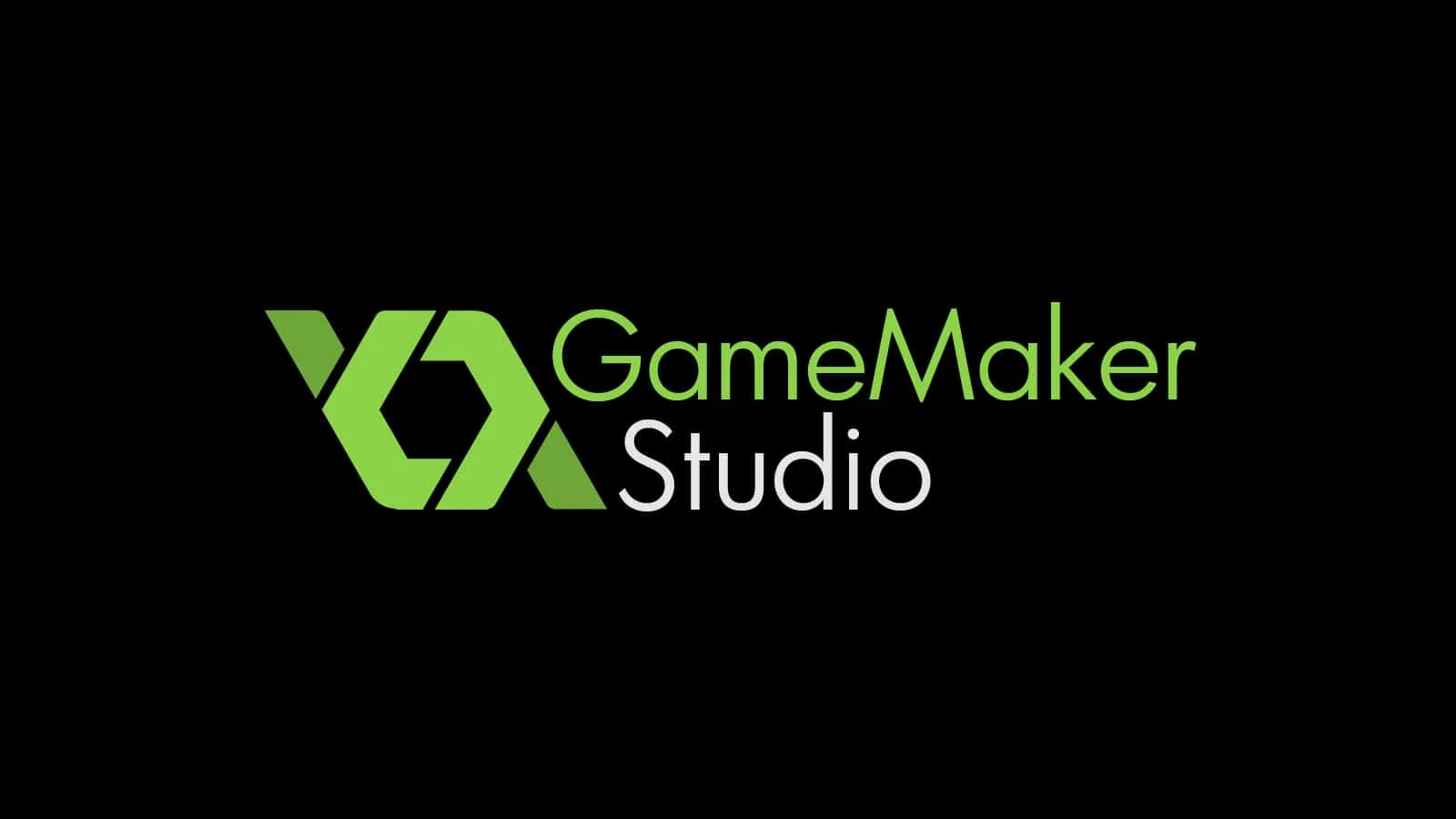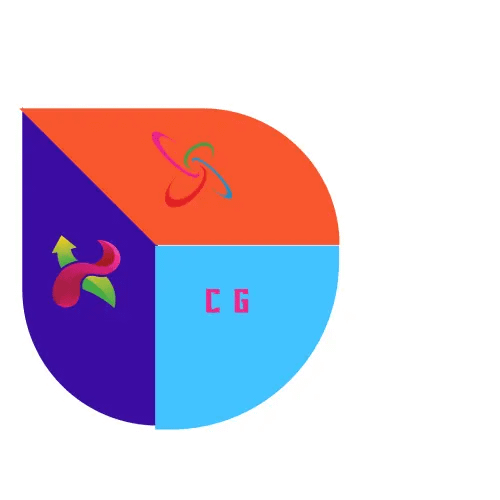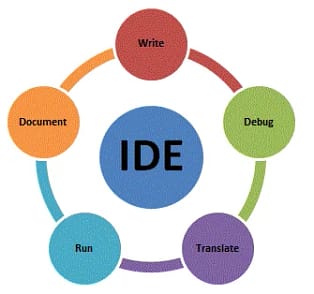Wondering for Best IDE for Game Development. Are you facing an issue of lack of information. No problem. Today I gonna give you all the information about which is Best IDE for Game Development.
Best IDE for Game Development:
An IDE is a software application that provides a set of tools for game developers to write, edit, debug, and run code. Different IDEs have different features, advantages, and disadvantages, depending on the game engine, platform, language, and style of game development.
Here are some of the best IDE you can use for Game Development. But first let us discuss about the important you may consider about the important use have to consider before choosing the right IDE for yourself.
- The game engine that you want to use or learn
- The platform that you want to target or support
- The language that you are comfortable with or want to learn
- The features and functionality that you need or want
- The cost and licensing of the IDE and the game engine
- The availability and quality of documentation, tutorials, and community support
Here are some of the best IDE for Game Development that you can choose:
Unity:
Unity is a popular and powerful game engine that supports 2D, 3D, VR, and AR games for desktop, mobile, and web platforms. Unity has its own IDE, which is based on Visual Studio and MonoDevelop. You can read more about unity.
It offers a rich set of features, such as code completion, debugging, testing, refactoring, version control, and more. Unity also has a large and active community of developers, tutorials, and assets. Unity is free for personal use and has various subscription plans for professional and enterprise use.
Unity is a popular game engine that allows you to create games and applications in 2D and 3D. It has many advantages and disadvantages, depending on your project and goals. It is one of best IDE for Game Development. Here are some of the pros and cons of Unity, based on the web search results:
Pros of unity:
- It is free for smaller-scale projects and supports over 25 platforms from iOS to PS4.
- It is ideal for beginners and has a large asset store and a strong community of support and resources.
- It is quick and easy to use and has a visual and intuitive interface and a prototyping tool for games and interactive visualizations.
- It is well-equipped for mobile development and can leverage technologies such as GPS, accelerometers, and gyroscopes.
- It can also handle augmented and virtual reality systems, particle systems, and UI systems.
Cons of Unity:
- It may not provide the best graphics or performance for high-end games or projects that require native optimization.
- It has limitations once the project becomes too big or complex, and may require more coding or scripting than other engines.
- It has poor support for multiplayer games and networking, and may require third-party solutions or plugins.
- It may have compatibility issues with some platforms or devices, and may require frequent updates or patches.
I hope this helps you understand the pros and cons of Unity. If you want to learn more, you can visit the official Unity website or check out some tutorials and courses online.

GameMaker Studio 2:
GameMaker Studio 2 is a game engine and IDE that is designed for beginners and hobbyists who want to create 2D games without coding. It uses a drag-and-drop interface and a scripting language called GML (GameMaker Language) to create games for Windows, Mac, Linux, Android, iOS, HTML5, and more.
GameMaker Studio 2 has over 80 tutorials and a friendly community of users. It also has a marketplace where you can buy and sell assets, tools, and extensions. GameMaker Studio 2 has a free trial and various pricing plans depending on the platform.
GameMaker 2 is another game engine that allows you to create 2D games and applications. It also has its own advantages and disadvantages, depending on your project and goals. Here are some of the pros and cons of GameMaker 2, based on the web search results:
Pros of Game Maker 2:
- It is ideal for beginners and has a large asset store and a strong community of support and resources.
- It is quick and easy to use and has a visual and intuitive interface and a prototyping tool for games and interactive visualizations.
- It is well-equipped for pixel games and deals in pixels, not units, so it’s very easy to build games with that style.
- It has a trial version that allows you to test the engine before buying it.
Cons of Game Maker 2:
- It is not free for smaller-scale projects and has different subscription tiers for different platforms.
- It has limitations once the project becomes too big or complex, and may require more coding or scripting than other engines.
- It has poor support for 3D development and may not provide the best graphics or performance for high-end games or projects.
- It may have compatibility issues with some platforms or devices, and may require frequent updates or patches.
I hope this helps you understand the pros and cons of GameMaker 2. It is also one of the best IDE for Game Development. If you want to learn more, you can visit the official GameMaker website or check out some tutorials and courses online.

GDevelop:
GDevelop is a free and open source game engine and IDE that allows you to create 2D games for web, mobile, and desktop platforms without coding. It uses a visual programming interface and a JavaScript-based event system to create games.
GDevelop has a simple and intuitive interface, a built-in asset store, a preview mode, and a web-based editor. GDevelop also has a wiki, a forum, and a Discord server for support and learning.
GDevelop is a game development platform that offers a visual programming interface, making it accessible for beginners while still providing advanced features for more experienced developers. Here are some of its pros and cons:
Pros of GDevelop:
- Visual Interface: GDevelop utilizes a visual programming interface, which makes it easy for beginners to create games without needing to learn complex programming languages.
- Cross-Platform Support: Games developed with GDevelop can be exported to various platforms, including Windows, macOS, Linux, Android, iOS, and HTML5, allowing developers to reach a wide audience.
- No Cost: GDevelop is free and open-source software, meaning developers can use it without any upfront costs. This makes it an attractive option for indie developers or those on a tight budget.
- Active Community: GDevelop has a supportive community of users who share resources, provide assistance, and offer feedback. This can be invaluable for beginners looking to learn and grow their skills.
- Built-in Physics Engine: GDevelop comes with a built-in physics engine, which simplifies the implementation of realistic movements and interactions within games.
- Extensions and Plugins: GDevelop supports extensions and plugins, allowing developers to extend its functionality and integrate additional features into their games.
Cons of GDevelop:
- Limited Performance: While GDevelop is suitable for developing 2D games, it may struggle with more complex or graphics-intensive projects. Developers looking to create high-performance games may find the platform limiting.
- Learning Curve: While GDevelop’s visual programming interface is designed to be accessible, there is still a learning curve, especially for those new to game development. Some users may find it challenging to transition from visual scripting to traditional programming languages.
- Less Flexibility: The visual nature of GDevelop’s programming interface may limit the flexibility and control that experienced developers are accustomed to with traditional coding. Certain advanced features or customizations may be more difficult to implement.
- Documentation and Tutorials: While GDevelop has documentation and tutorials available, some users may find them lacking in depth or detail, particularly for more advanced topics. This can make it challenging for developers to troubleshoot issues or implement complex features.
- Performance Optimization: Optimizing the performance of games developed with GDevelop can be challenging, especially for larger projects. Developers may need to invest time in fine-tuning their games to ensure they run smoothly across different platforms.

GameSalad:
GameSalad is a game engine and IDE that enables you to create 2D games for web, mobile, and desktop platforms without coding. It uses a behavior-based logic system and a drag-and-drop interface to create games.
GameSalad has a library of pre-made assets, sounds, and templates, as well as a publishing tool that allows you to export your games to various platforms.
GameSalad also has a curriculum, a forum, and a marketplace for education and collaboration. GameSalad has a free version and a pro version with more features and support.
GameSalad is another game development platform that allows users to create games without requiring extensive coding knowledge. You can choose the best IDE for Game Development depends upon different factors. Here are some of its pros and cons:
Pros of Gamesalad:
- No Coding Required: GameSalad’s drag-and-drop interface allows users to create games without writing any code. This makes it accessible to beginners and those with little to no programming experience.
- Cross-Platform Deployment: Games created with GameSalad can be deployed to multiple platforms, including iOS, Android, HTML5, and macOS, allowing developers to reach a wide audience.
- Visual Interface: Similar to GDevelop, GameSalad offers a visual interface that simplifies game development. Users can create game logic by connecting pre-made behaviors and actions, making it easy to prototype and iterate on game ideas.
- Community and Resources: GameSalad has an active community of users who share resources, tutorials, and templates. This can be helpful for beginners looking to learn and get started with the platform.
- Templates and Assets: GameSalad provides a library of templates and assets that users can use to kickstart their game development process. This can save time and effort, especially for those new to game development.
Cons of GameSalad:
- Limited Flexibility: While GameSalad’s visual interface is easy to use, it may lack the flexibility and control that experienced developers desire. Users may find it challenging to implement complex game mechanics or optimize performance for larger projects.
- Subscription Model: GameSalad operates on a subscription-based pricing model, which may be a barrier for indie developers or those on a tight budget. While there is a free tier available, it comes with limitations on features and functionality.
- Performance Limitations: Games created with GameSalad may not perform as well as those developed with traditional programming languages, especially for graphics-intensive or performance-critical applications.
- Learning Curve: While GameSalad’s visual interface is designed to be intuitive, there is still a learning curve, particularly for users who are new to game development concepts. Some users may find it challenging to understand and utilize the platform’s features effectively.
- Dependence on GameSalad Servers: GameSalad projects are stored and managed on GameSalad’s servers, which means users are dependent on the platform’s infrastructure. If there are any issues with the servers or if the platform were to shut down, it could impact users’ ability to access and work on their projects.

Consulo:
Consulo is an IDE that is based on JetBrains IntelliJ IDEA and supports Unity game development. It offers features such as code completion, syntax highlighting, refactoring, debugging, testing, and more.
Consulo also supports other languages and frameworks, such as C#, Java, Kotlin, and Android. Consulo is free and open source, and runs on Windows, Mac OS X, and Linux.
Pros of consulo:
- Visual Programming Interface: Consulo offers a visual programming interface that allows users to create games without needing extensive coding knowledge. This can make game development more accessible to beginners and those with limited programming experience.
- Cross-Platform Support: Games developed with Consulo can be exported to multiple platforms, including Windows, macOS, Linux, Android, and iOS. This flexibility enables developers to reach a wider audience with their games.
- Free and Open-Source: Consulo is free to use and open-source, meaning developers can access and modify its source code as needed. This can be beneficial for indie developers or those on a tight budget who want to create games without investing in expensive software licenses.
- Active Community: Consulo has an active community of users who contribute resources, tutorials, and support. This can be valuable for developers looking to learn and collaborate with others in the community.
- Modular Architecture: Consulo features a modular architecture that allows users to extend its functionality through plugins and extensions. This flexibility enables developers to customize the platform to suit their specific needs and preferences.
Cons of consulo:
- Limited Documentation: While Consulo has documentation available, some users may find it lacking in depth or detail, particularly for more advanced features or topics. This can make it challenging for developers to troubleshoot issues or implement complex functionality.
- Learning Curve: Like other game development platforms, Consulo has a learning curve, especially for users who are new to game development concepts or visual programming interfaces. While the platform aims to be accessible, beginners may still encounter challenges as they learn to use its features effectively.
- Performance Limitations: Games developed with Consulo may not perform as well as those created with more advanced game engines, especially for graphics-intensive or performance-critical applications. Developers may need to optimize their games carefully to ensure smooth performance on target platforms.
- Less Community Support: While Consulo has an active community, it may not be as large or as well-established as some other game development communities. This could mean fewer resources, tutorials, and support available compared to more popular platforms.
- Feature Set: While Consulo offers a range of features for game development, it may not have as extensive a feature set as some other game engines or development platforms. Developers looking for advanced features or specialized tools may find Consulo lacking in comparison to more established alternatives.

You can try out different IDEs and see which one suits your needs and preferences the best. You can also check out online reviews, ratings, and comparisons of different IDEs to get more insights and opinions. I hope this helps you to find the best IDE for game development journey. Happy coding!
FAQS about best IDE:
Here are some frequently asked questions about best IDE for Game Development:
Sure, here are some frequently asked questions (FAQs) about the best IDE for game development:
- What is an IDE and why is it important for game development?
An IDE is a software application that provides comprehensive facilities to programmers for software development. It typically includes a code editor, compiler/interpreter, debugger, and other tools needed for development. For game development, a powerful IDE can streamline the coding process, improve productivity, and facilitate debugging and testing. - What are some popular IDEs used for game development?
Some popular IDEs for game development include Unity, Gamesalad, Game Maker 2 , GDevelop and Consulo with game development. Each has its own strengths and is preferred by different developers based on their specific needs and preferences. - Which IDE is best for beginners in game development?
For beginners, IDEs like unity is often recommended. Unity offers a user-friendly interface and extensive documentation, making it easier for newcomers to get started with game development. You can choose best IDE for Game development depending upon your Choice. - Is there a difference between using a general-purpose IDE and one specifically designed for game development?
Yes, there can be differences. While general-purpose IDEs like Visual Studio can be used for game development with the right extensions and plugins, IDEs specifically designed for game development often come with built-in tools and workflows tailored to the needs of game developers. - Are there any free IDEs available for game development?
Yes, there are several free IDEs available for game development, such as Unity Personal Edition, Godot Engine, and Visual Studio Community Edition. These free IDEs offer robust features and are suitable for indie developers and hobbyists. - How do I choose the best IDE for game development project for you?
When choosing the best IDE for game development project for you, consider factors such as your familiarity with the IDE, compatibility with your chosen game engine, community support, available plugins and extensions, and your specific workflow preferences. It’s also helpful to try out different IDEs to see which one best suits your needs.
Conclusion:
The choice of best IDE for game development ultimately depends on your specific needs, preferences, and project requirements. Whether you’re a beginner or an experienced developer, there are a variety of IDEs available, each with its own strengths and features tailored to different workflows.
For beginners, user-friendly IDEs offer an accessible entry point into game development, with intuitive interfaces and extensive documentation. Meanwhile, more experienced developers may prefer the advanced features and customization options provided by different IDE’s
Regardless of the IDE you choose, what’s most important is finding a tool that enhances your productivity, facilitates collaboration with team members, and helps you bring your game ideas to life.
Experimenting with different IDEs and exploring their capabilities can ultimately lead you to the best fit for your game development journey. So, dive in, explore, and let your creativity flourish as you embark on the exciting adventure of game development.



